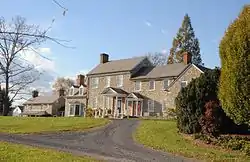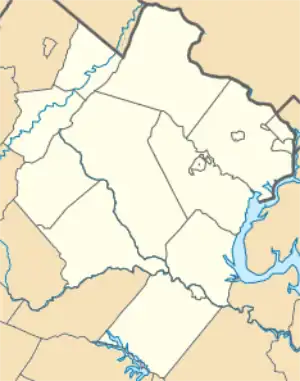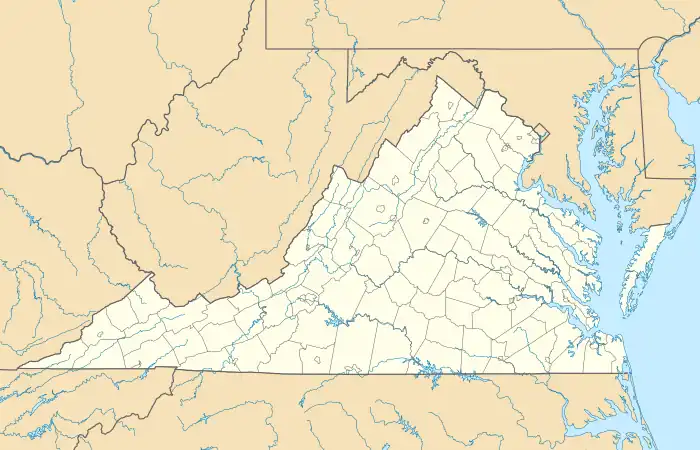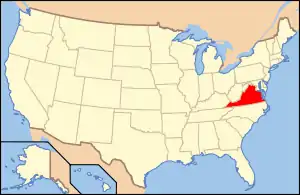Chapel Hill | |
 | |
   | |
| Location | 300 Chapel Hill Ln., near Berryville, Virginia |
|---|---|
| Coordinates | 39°6′49″N 78°1′14″W / 39.11361°N 78.02056°W |
| Area | 477 acres (193 ha) |
| Built | c. 1825, 1938 |
| Architect | George L. Howe |
| Architectural style | Federal, Colonial Revival |
| NRHP reference No. | 04000846[1] |
| VLR No. | 021-0014 |
| Significant dates | |
| Added to NRHP | December 30, 2004 |
| Designated VLR | June 16, 2004[2] |
Chapel Hill is a historic plantation house located near Berryville, Clarke County, Virginia. The oldest sections of the main house dates to the mid-1820s and is in the Federal style. They are the central two-story, six-bay section, which consists of two distinct gable-roofed blocks; and the two-story, three-bay section now at the southernmost end of the house. The house was remodeled and enlarged in 1941 in the Colonial Revival style, after plans drawn up by George L. Howe, a Washington, DC architect. Also on the property are the contributing stable, groom's house, frame bank barn, machine shed, corncrib, barn, chicken coop, and three small sheds. The property was purchased by William J. Donovan (1883-1959) in 1938, who subsequently undertook the renovation and expansion of the main house. Architect George L. Howe designed alterations and additions during 1938–1941.[3]
It was listed on the National Register of Historic Places in 2004.[1]
References
- 1 2 "National Register Information System". National Register of Historic Places. National Park Service. July 9, 2010.
- ↑ "Virginia Landmarks Register". Virginia Department of Historic Resources. Archived from the original on 2013-09-21. Retrieved 5 June 2013.
- ↑ Maral S. Kalbianl and Margaret T. Peters (November 2004). "National Register of Historic Places Inventory/Nomination: Chapel Hill" (PDF). Virginia Historic Landmarks Commission. and Accompanying four photo

